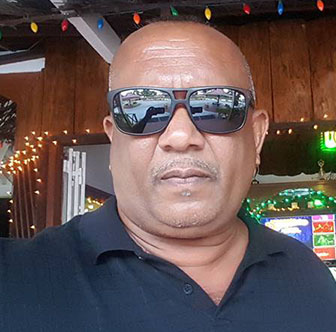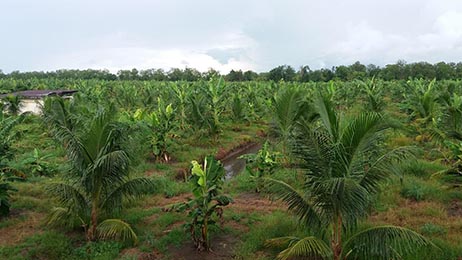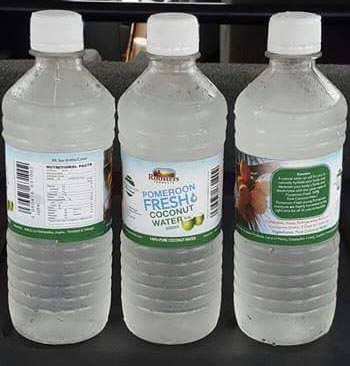The refusal by the Trinidad and Tobago food safety authorities to allow a shipment of coconut water from Guyana to be sold there on the grounds that it does not meet the requisite safety standard could engage the two CARICOM countries at government-to-government level even as the Government Analyst & Food & Drug Department (GAFDD) insists that tests carried out on the product here have given the coconut water a clean bill of Health.
Director of the GAFDD, Marlan Cole confirmed this week that the agency had issued a free Sale Certificate to Roosters Products for the export of a consignment of coconut water to Massy Distribution of Trinidad and Tobago. This newspaper has learnt that samples of the coconut water had also been cleared by the Scientific Research Council of Jamaica during a regional coconut forum in Kingston in November. However, information has since surfaced suggesting that the opinion of the two agencies is not shared by Caribbean Industrial Research Institute (CIRI) or the laboratory testing facilities at the University of the West Indies.
The existing regional standard for coconut water was created by the CARICOM Regional Organization for Stan-dards and Quality (CROSQ) and speaks to absence from the product of natural or artificial substance substances or ingredients designed “to enhance its quality or preservation.” The standards also dictate that chemicals present in the product “should only be those present as a result of the natural development of the fruit while on the tree.”

The regulations also dictate that packaged natural coconut water
“shall be free from adulterants, extraneous matter and other contaminants such as heavy metals” and be in compliance with the maximum pesticide residue limits established by the Codex Alimentarius Commission for similar products. Further, “all steps in the packaging of coconut water shall be performed without unnecessary delay and under conditions which shall prevent the possibility of contamination, deterioration or the development of pathogenic and spoilage micro-organisms.”
The regulations further dictate that the name of the product shall be ‘Packaged Natural Coconut Water’ and will include the statement ‘Keep refrigerated’; and ‘If frozen, thaw and shake well’.
The refusal by the Port of Spain authorities to clear the Guyana coconut water for sale in the neighbouring CARICOM country comes at a time when the local coconut industry has been seeking to expand coconut cultivation and enhance its reputation as a supplier in order to take advantage of what is a growing global market for coconut and coconut by-products.

Stabroek Business has learnt that arising out of the incident the contract between Roosters Products and Massy Distribution has been terminated and the consignment is now expected to be returned to Guyana.
This week the controversy took a new twist engaging the Ministry of Foreign Affairs with a view to the matter being raised at a government-to-government level. Cole confirmed that the two local entities had indeed met and that the GAFDD had written to the Ministry of Foreign Affairs though he declined to disclose either the nature of the meeting of the contents of the written communication. Such action as is taken by the Ministry of Foreign Affairs in Guyana could begin with a formal note to its opposite number in Port of Spain requesting that the matter be investigated.
Proprietor of the Rooster brand, Essequibo businessman Roopan Ramotar told Stabroek Business earlier this week that samples from the same batch of coconut water currently being held up in Port of Spain have also been tested by the Scientific Research Council of Jamaica and found to have reached the requisite standard required by CARICOM for sale in the region. Ramotar disclosed that he is in receipt of communication from the authorities in Trinidad and Tobago notifying him that the frozen coconut water is to be disposed of there, though he says that he remains confident in the integrity of the batch and has opted to have the consignment returned to Guyana.
According to Ramotar the total cost of the consignment, inclusive of return shipping will be US$7,000.
Testing of food products in Trinidad and Tobago is the responsibility of the Chemistry, Food and Drugs Division (CFDD) of the Ministry of Health.
Stabroek Business understands that this is the sixth shipment of coconut water exported to Trinidad and Tobago by Ramotar. He says that all of his previous shipments have undergone the same checks and none of them has been impounded.










